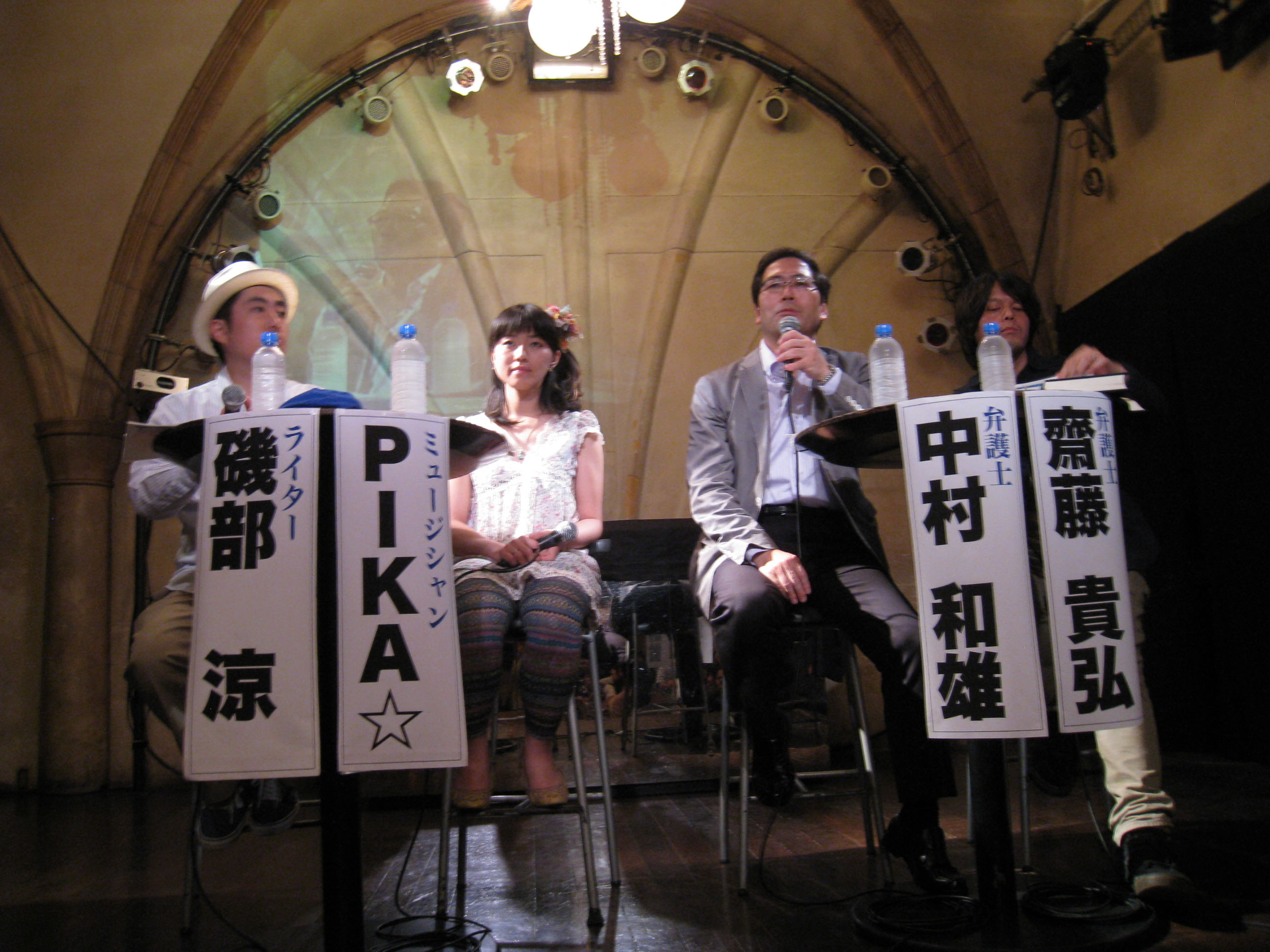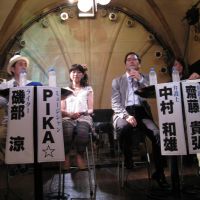Around 200 people gathered on the dancefloor of Kyoto's Club World on Sunday — but they weren't dancing.
In fact, that's exactly what they were there to protest: a 1984 addition to the 1948 Fuzoku Eigyo Torishimariho (Entertainment Business Control Law) that prohibits late-night dancing in clubs and live-houses. The action is being spearheaded by Let's Dance, a grassroots organization based in Kyoto.
Let's Dance spokesperson and lawyer Kazuo Nakamura says their goal is to amend the Fuzoku law to remove the "act of dancing" at music-related venues from being included in the official regulations. "It is a law that puts unfair restrictions on dancing," Nakamura said. "Convenience stores, cinemas and even karaoke places can stay open all night, so why not music venues?"
The group has created a petition that aims to collect the names of 100,000 people in order to present it to the national Diet for consideration. "I believe we can change this out-of-date law," Nakamura asserted. "Laws are modified every year."
Venue owners say there has been a significant increase in the past two years of police using the law to close down establishments. World itself was closed last December just as the popular DJ Kentaro was about to perform.
Sunday's event included a panel discussion headed by Nakamura and fellow lawyer Takahiro Saito, as well as writer Ryo Isobe and musician Pika — all members of Let's Dance. The organization formed in May and has received backing from such musical luminaries as Ryuichi Sakamoto, Yoshihide Otomo and the organizers of the Fuji Rock and Summer Sonic festivals.
For more information or to register your name on the petition, visit www.letsdance.jp. (Note: Non-Japanese residents of Japan are able to sign the petition, but must provide a valid address.)


















With your current subscription plan you can comment on stories. However, before writing your first comment, please create a display name in the Profile section of your subscriber account page.